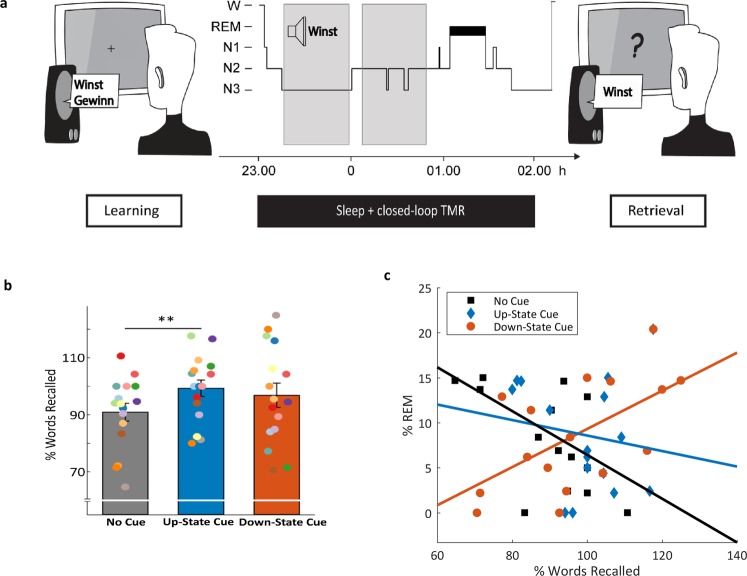Figure 2.
Experimental Procedure and memory task results. (a) After studying 120 Dutch-German word pairs in the evening, participants slept for 3 hours. During NREM sleep, 40 Dutch words were presented during SO up-states and 40 Dutch words were presented during SO down-states using closed-loop TMR. 40 Dutch words were not replayed. A cued recall procedure was applied after sleep, testing the participant’s memory for the German translations. (b) Presenting prior learned words during SO up-states significantly enhanced memory performance compared to uncued words. Recall performance of words replayed during SO down-states did not differ from the two other categories. Retrieval performance is indicated as percentage of recalled German translations with performance before sleep set to 100%. Values are mean ± SEM **P ≤ 0.025. (c) Correlation between memory performance and relative time spent in REM sleep. Memory performance for words presented during down-states is positively correlated with time spent in REM sleep (r14 = 0.59, P = 0.017). There was no significant correlation for words presented during up-states (r14 = −0.16, P = 0.552), and a marginal significant negative correlation for uncued words (r14 = −0.49, P = 0.052).

